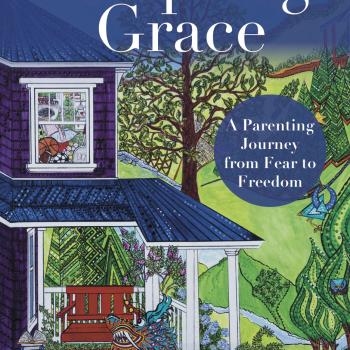
Image: Pixabay
I posed a question in my parenting Facebook Group, “If Jesus had children, would he have spanked them?” The overwhelming immediate responses were,
“no,”
“heck no,”
“if he did, I could not follow him anymore.”
Understandably, because it is near impossible to reconcile the loving, peace-making, power-giving image of Jesus with one who could intentionally hurt a child. But someone brought up a fair point that during the time and context of Jesus, corporal punishment of children was likely the norm and not considered problematic in the least.
In fact, it sucked to be a child in biblical times. A lot. The way children were treated throughout the Bible were mostly horrible to our modern sensibilities.
Let’s start in the beginning, shall we? In Genesis, Abraham, hailed as the father of faith, dragged his son to the altar with the intention of killing him as a sacrifice to God. Try to put yourself in Isaac’s shoes—his father bound him and was going to knife him to death on a rock. That’s horrifying. And yet the Bible was disturbingly cavalier with what can only be described as child abuse.
Next, Exodus. One of the most climactic scenes in the central storyline is the genocide of children, where Pharaoh orders the infanticide of baby boys across Egypt. This atrocity is of course, repeated at the birth of Jesus, lest you think the Old Testament is more brutal than the New. Genocide of firstborn sons accompany the story of our Savior’s birth. These texts go beyond child abuse, but are veritable texts of terror. (Parenting tip: don’t read these Bible stories to your young children, genocide doesn’t make a good bedtime story).
And then we get to the most problematic text of all, the heralded verse used by conservative Christian families across the board for biblical validation to spank children: the dreaded ‘rod’ in Proverbs. In chapter 13 verse 24, “Whoever spares the rod hates their children, but the one who loves their children is careful to discipline them.” This is the seminal Scripture passage used to justify spanking and other forms of authoritative parenting in much of conservative Christian parenting literature. Calls for more gentle forms of guidance are poo-pooed by some Christians as undermining biblical authority and shamed as watering down the gospel truths of godly parenting. Despite decades of research showing the lasting harms of corporal punishment, Christians will still defend spanking as a legitimate form of discipline because it is the biblical way.
But here’s the thing:
The Bible is not a parenting manual.
I repeat.
The Bible is not a parenting manual.
For Christians who hold Scripture in high authority, should it shape our parenting? Absolutely, but you cannot lift a verse out of the middle of Scripture and use it to justify hitting your child without regard to the context of both the Scripture and our current environment. To apply Scripture in this way is irresponsible to the text and does a great deal of harm.
It is okay to interrogate our holy scriptures when it comes to parenting. It is okay for us to say WTF Abraham, are you kidding me? You’re a terrible Dad for doing that to your son and I don’t blame him if he hates you for the rest of his life! The Bible’s primary purpose is not to present best parenting practices that apply across all time and cultures, it is there to tell a story about God, and us, and God’s plan of salvation. That Story contains snippets of gore and gripping tales of genocide and beautiful redemption found through gritty humanity. We can question the brutality without undermining the powerful ways Scripture shapes our faith.
How then, should we interpret Scripture to inform our parenting today?
First, allow the problematic texts to stand as it is and wrestle with it. Questioning why children were treated with so little respect gives us insight into the cultural context of antiquity and challenges us to examine how we still live in an Anti-Child world today.
Second, the way Jesus treated children stands in starker contrast when we have an understanding of the low status children had in biblical times. He welcomed, hugged, and blessed children, dismantling the strong power dynamics his contemporaries held over children. We should apply a Jesus-centric lens to guide our application of Scripture to parenting practices.
Third, follow the trajectory of Scripture. Digest the story of Scripture as a whole, the story of how God saves through Jesus. Jesus who preaches a kingdom where the least becomes the greatest and who subverts the powers of empire—the powers that enslave, oppress, and does violence to children, and allow the story to transform us into revolutionary parents who emulate Jesus in raising our children by giving up our power over them.
Please. Don’t pick up that rod in the name of biblical parenting ever again. Lay down the rod. Question the practice of spanking our children. Listen to the research that is seeking the best interests of children, telling us that the harm of corporal punishment is severe and long lasting and sometimes irreparable. No one questions your love for your kids, we are all trying to do the best we can. But the gospel is one that sets us free to imagine new paths, a Jesus way that does not lord power over the little ones but uses our hands to hold and not harm.
Get a free download of a Christian parenting manifesto that helps us guide children into healthy spirituality + the most helpful parenting resources with progressive values.












